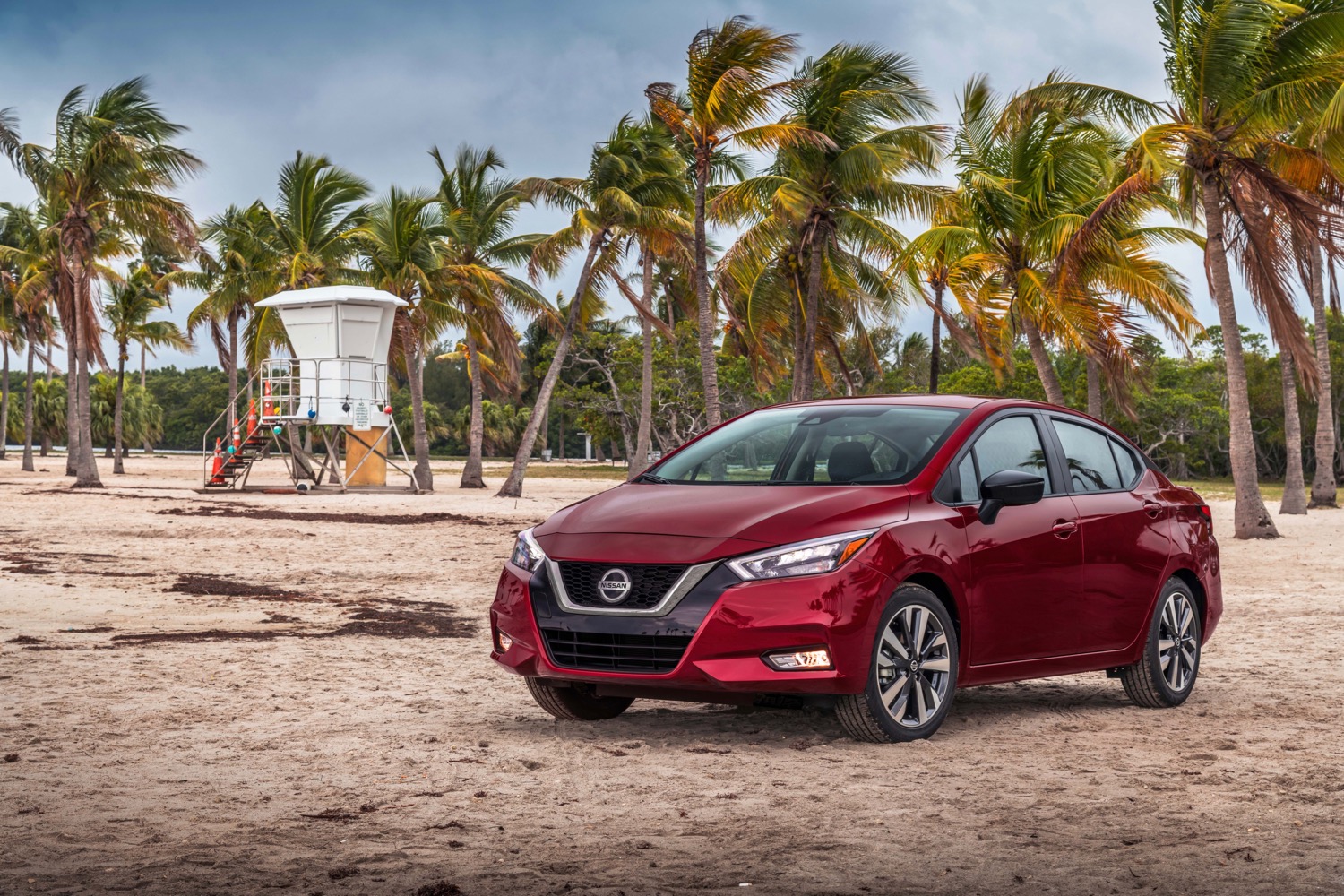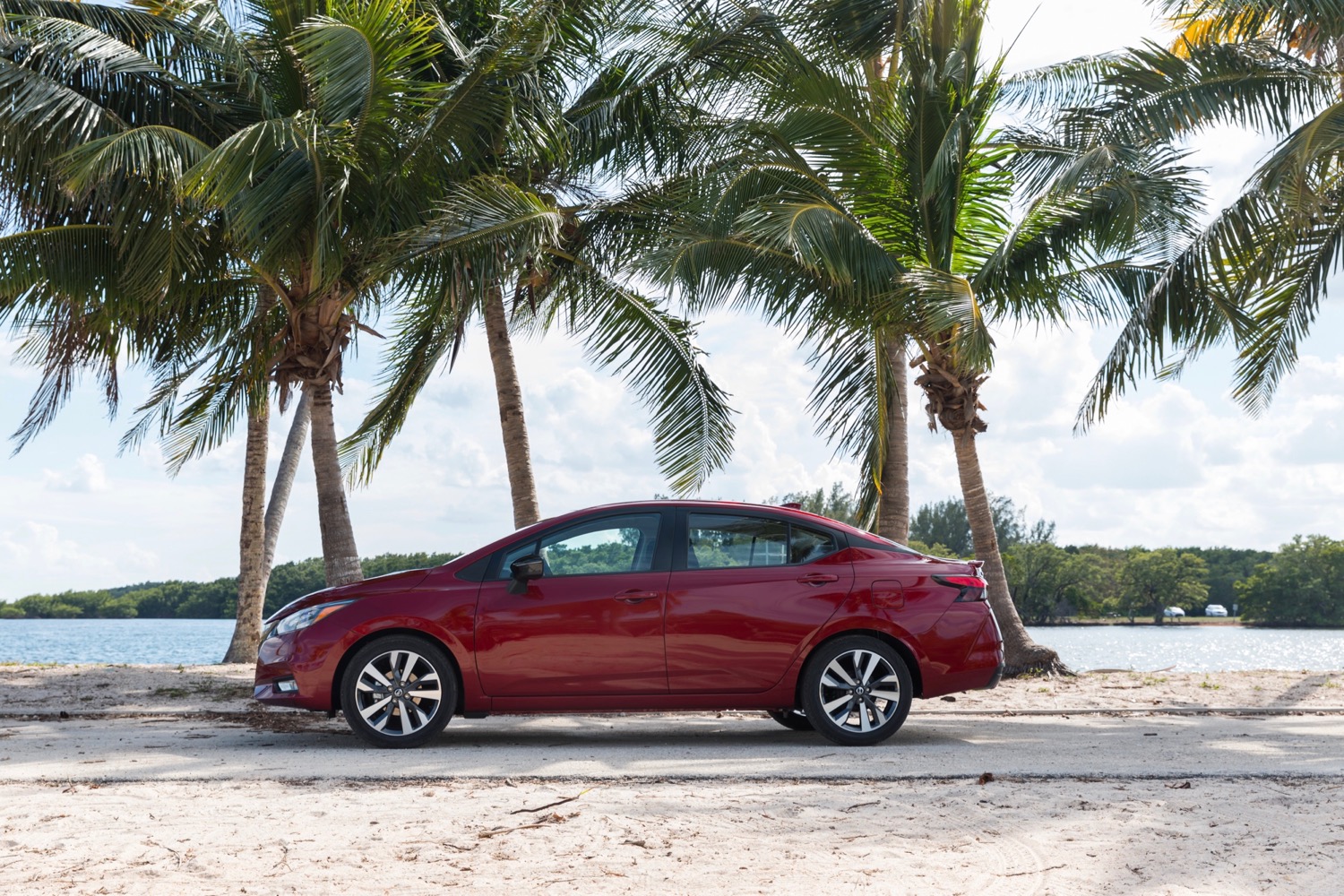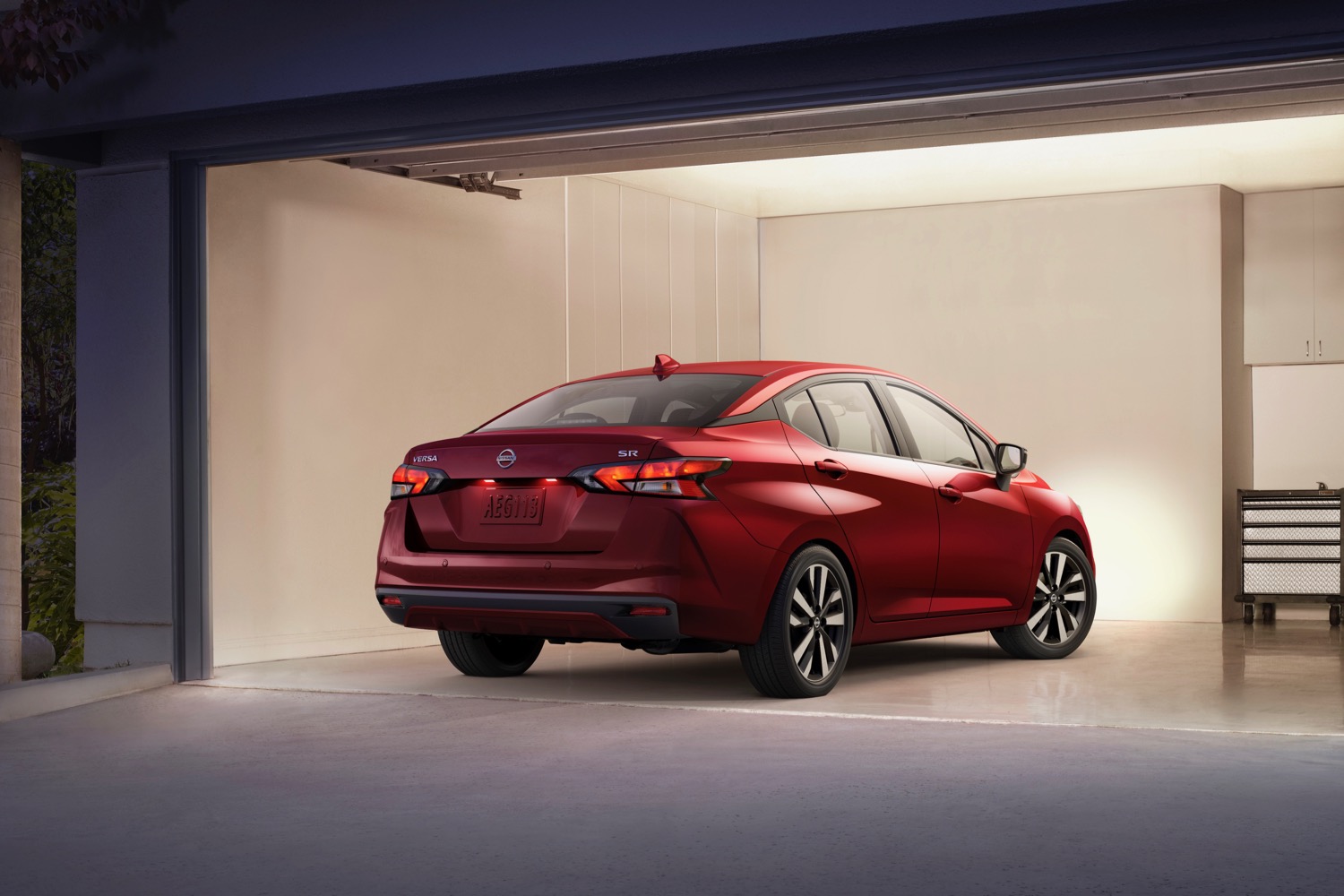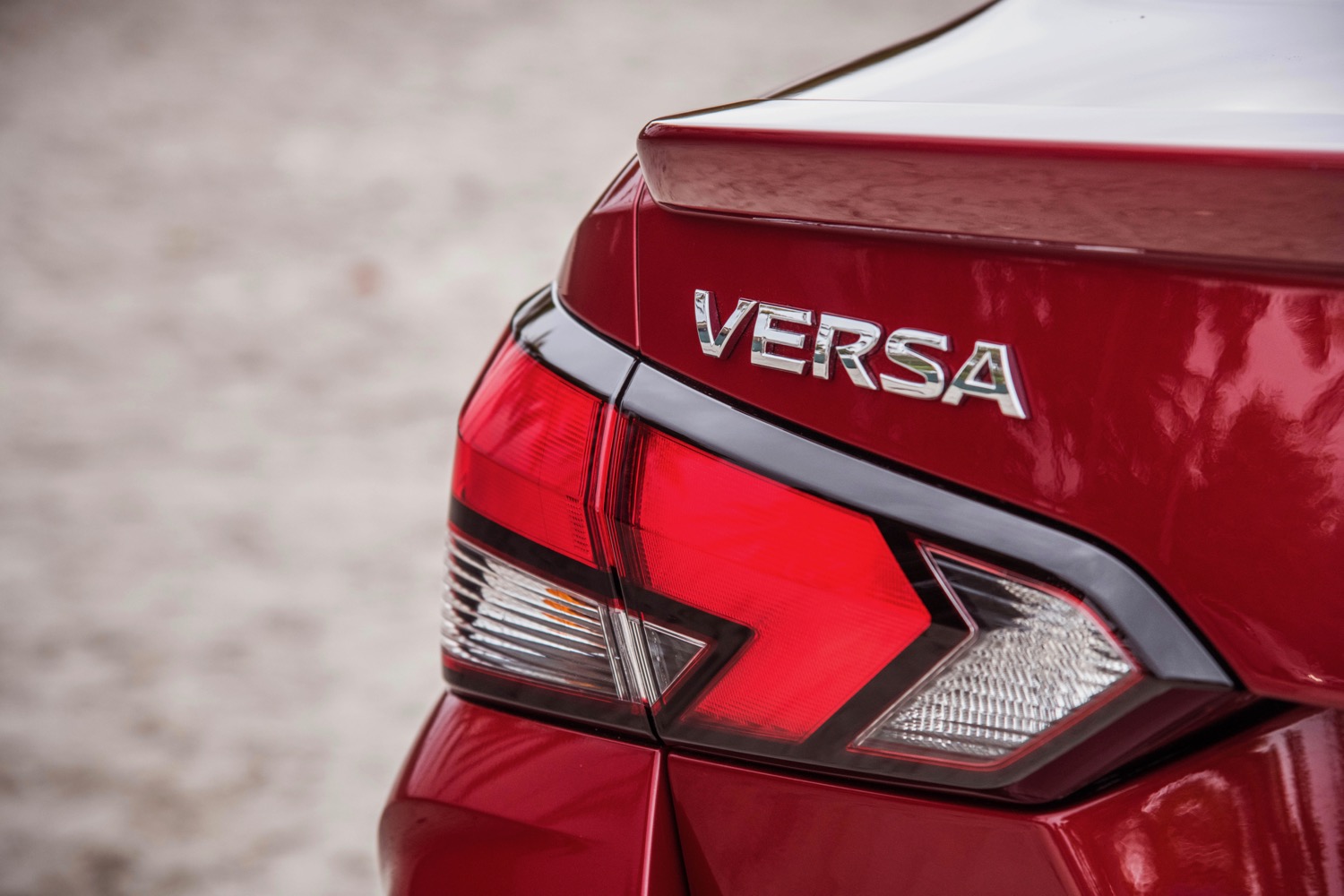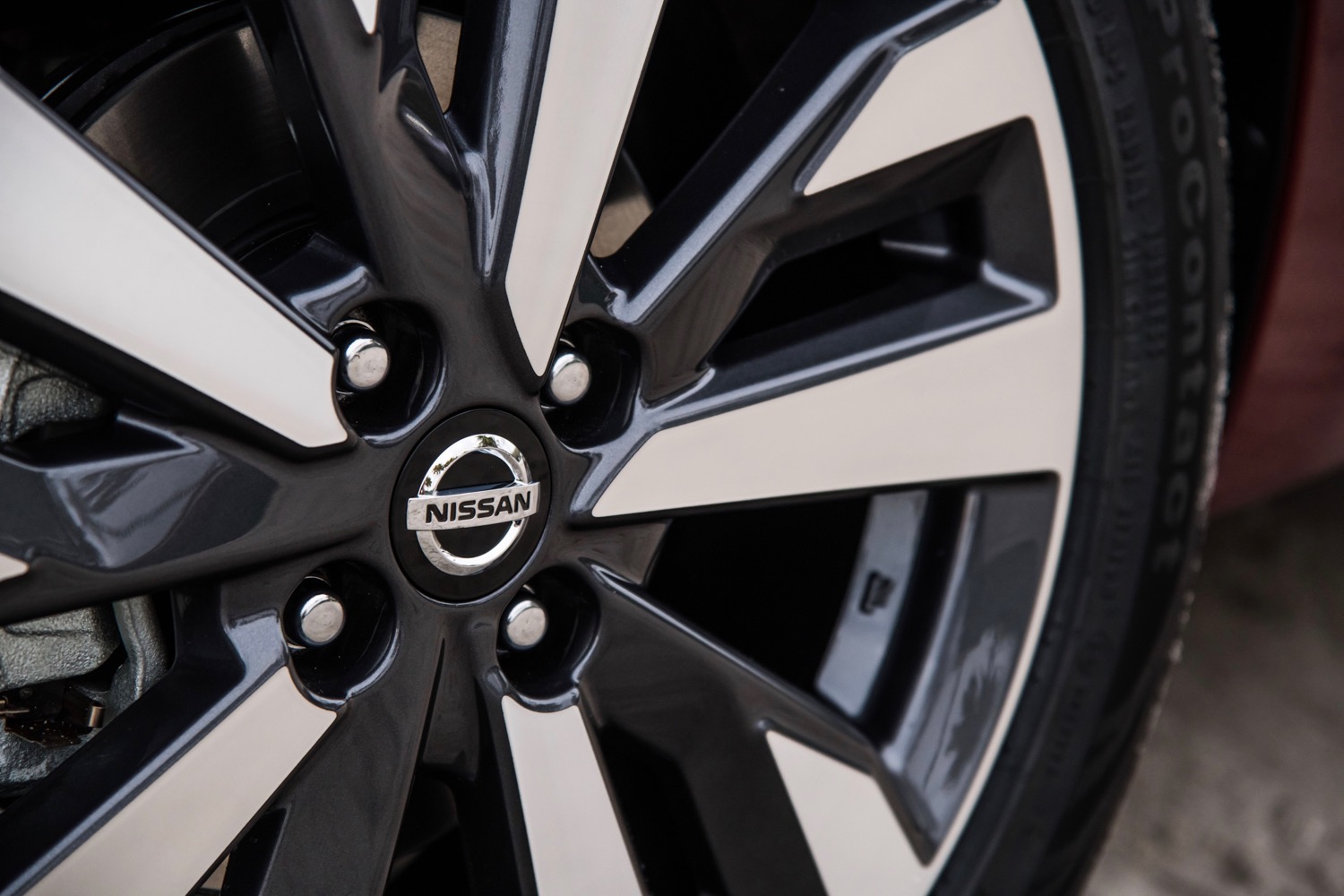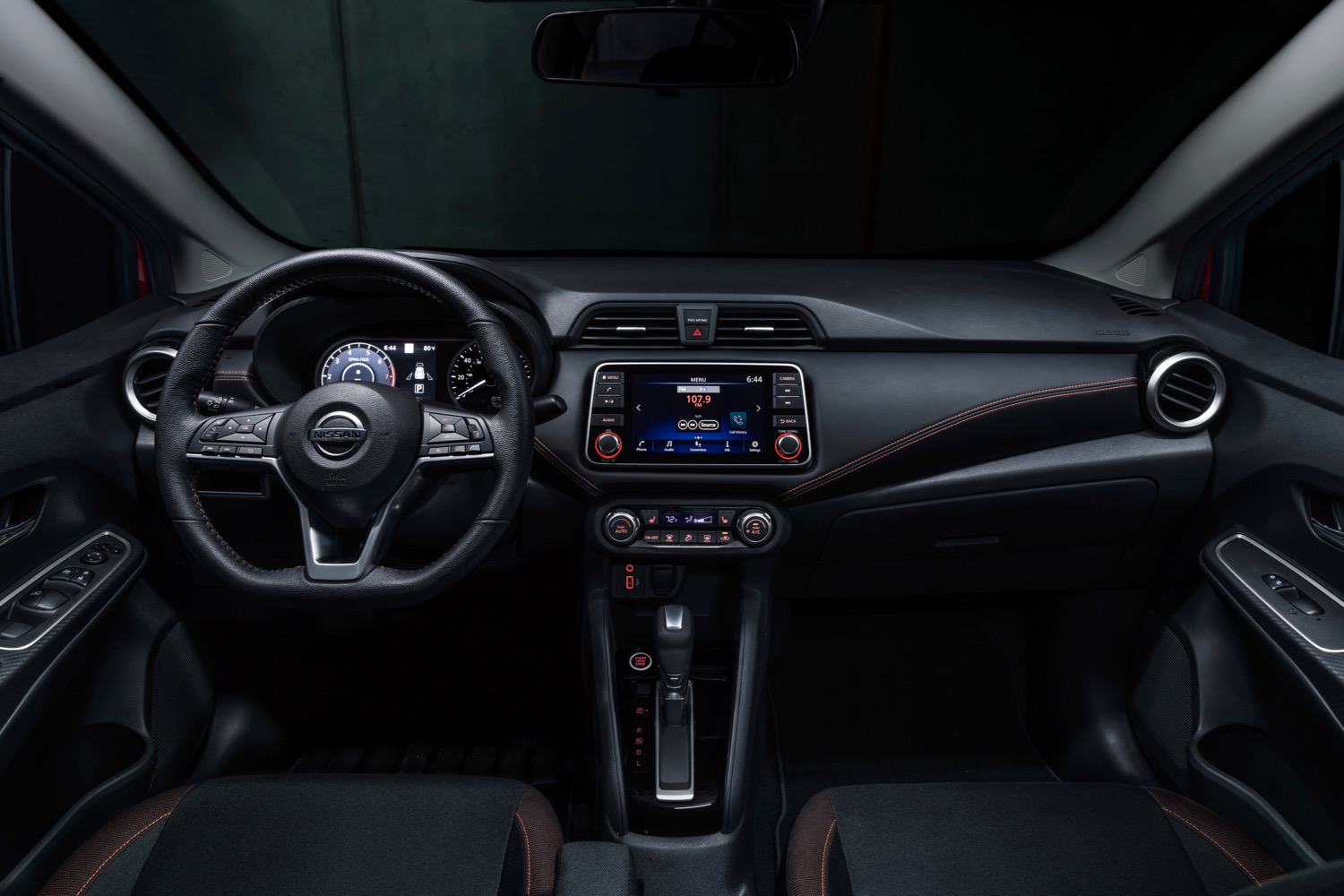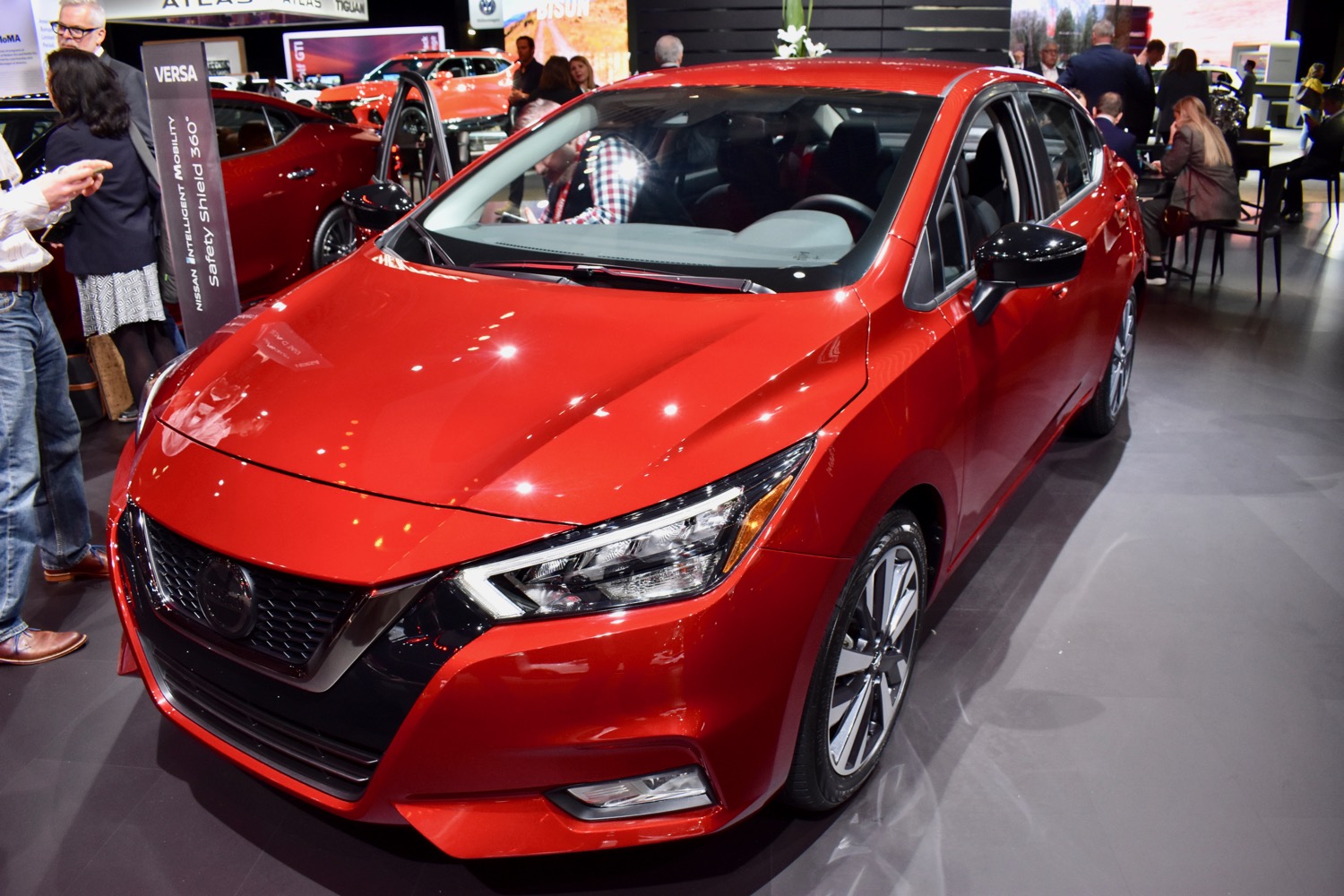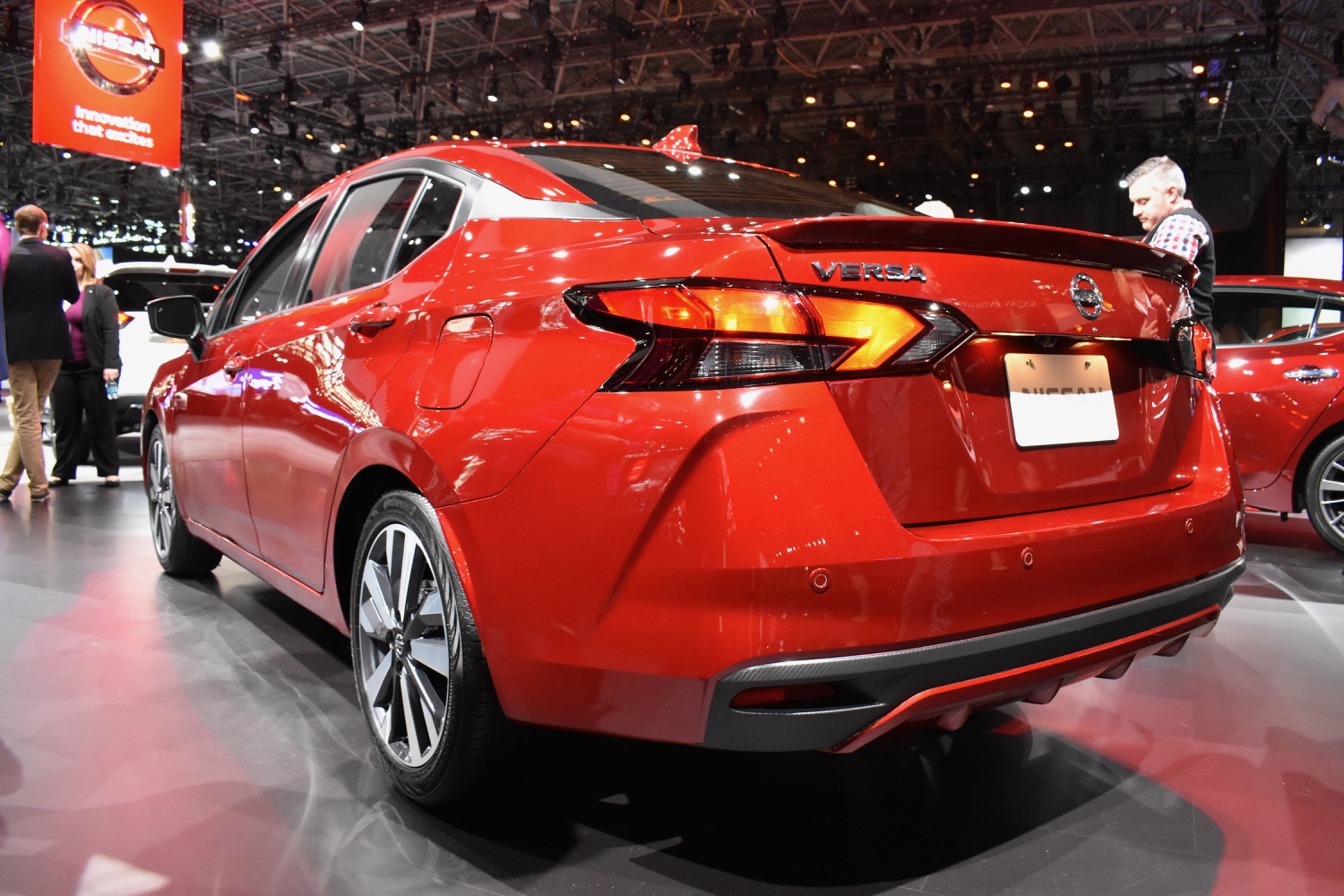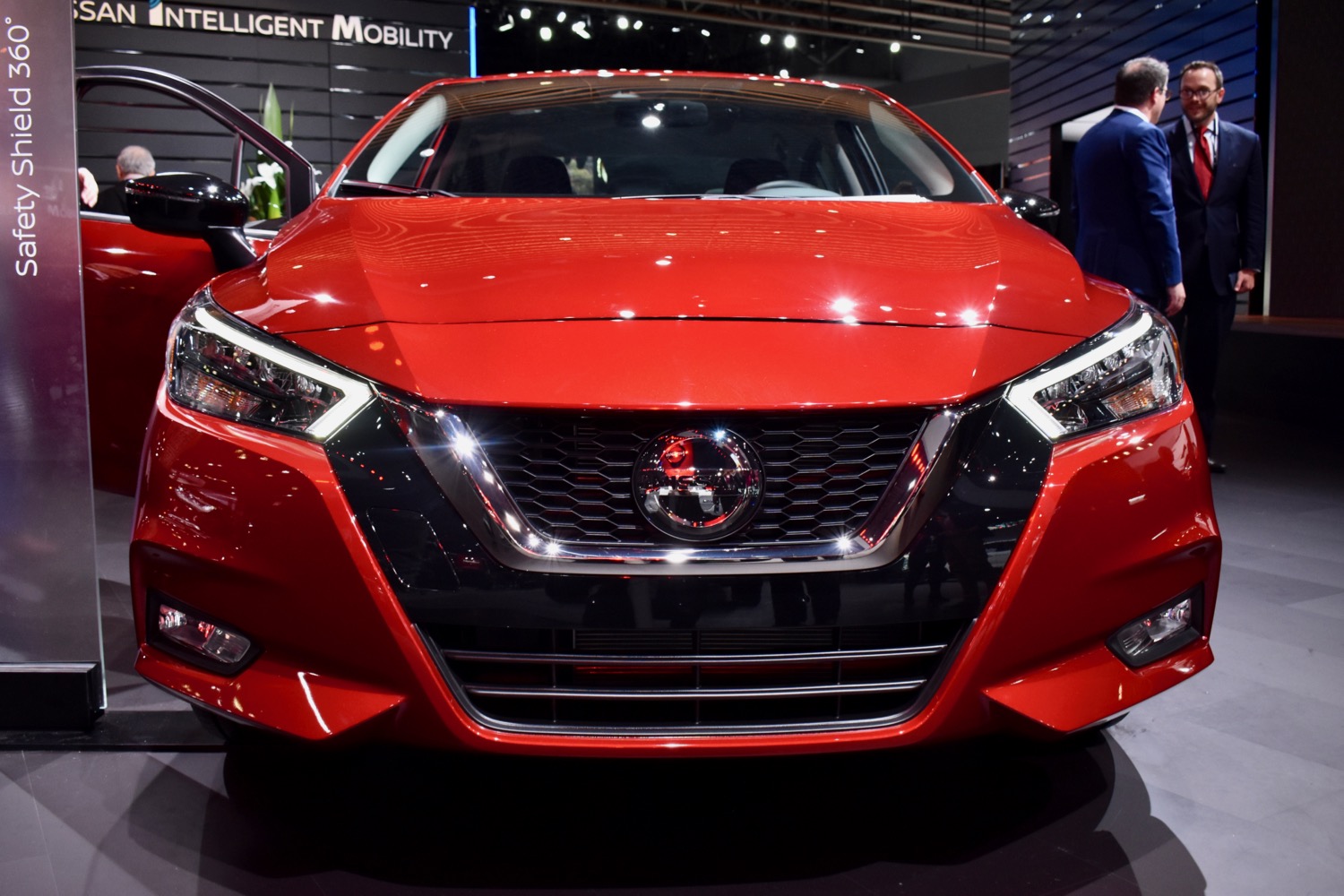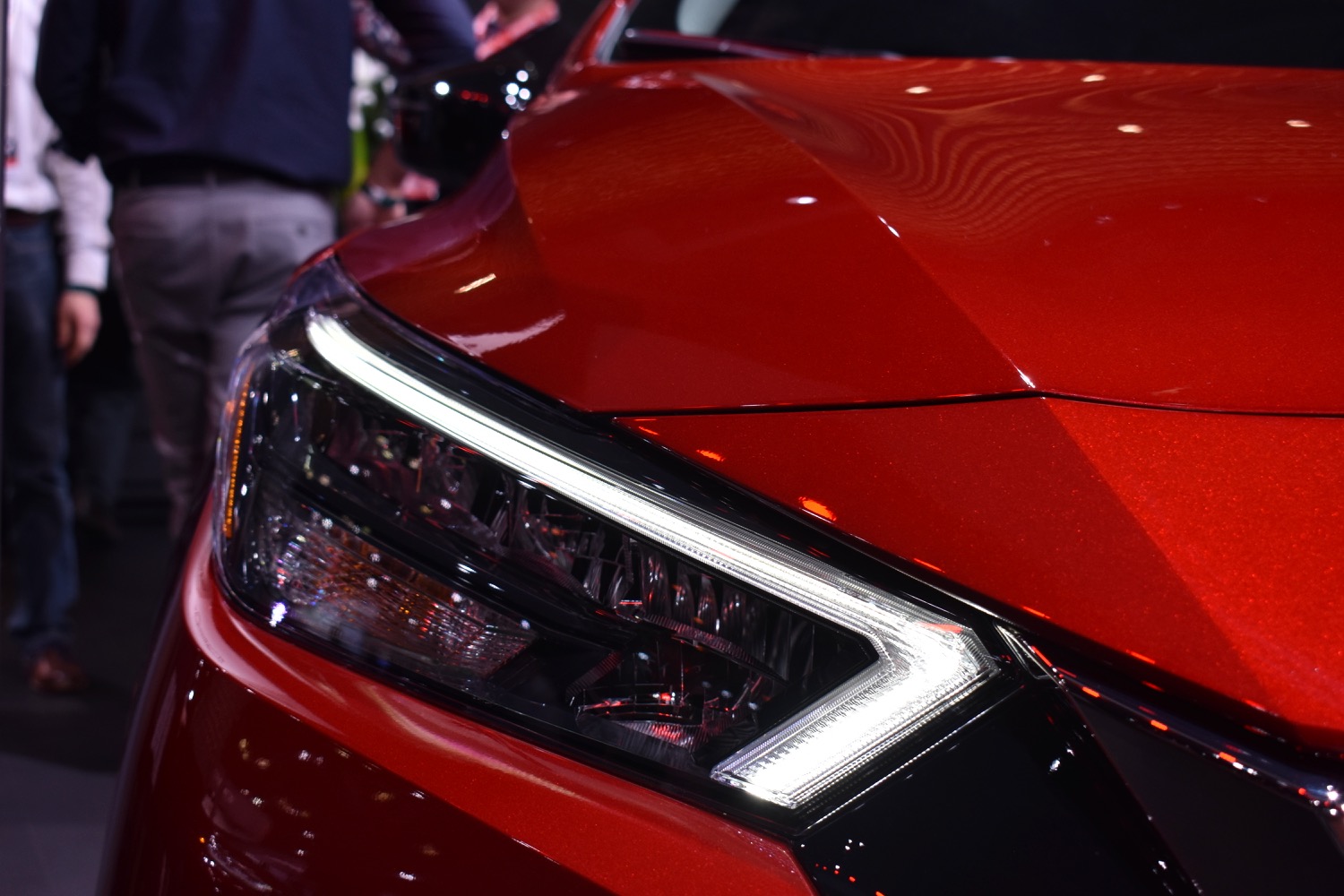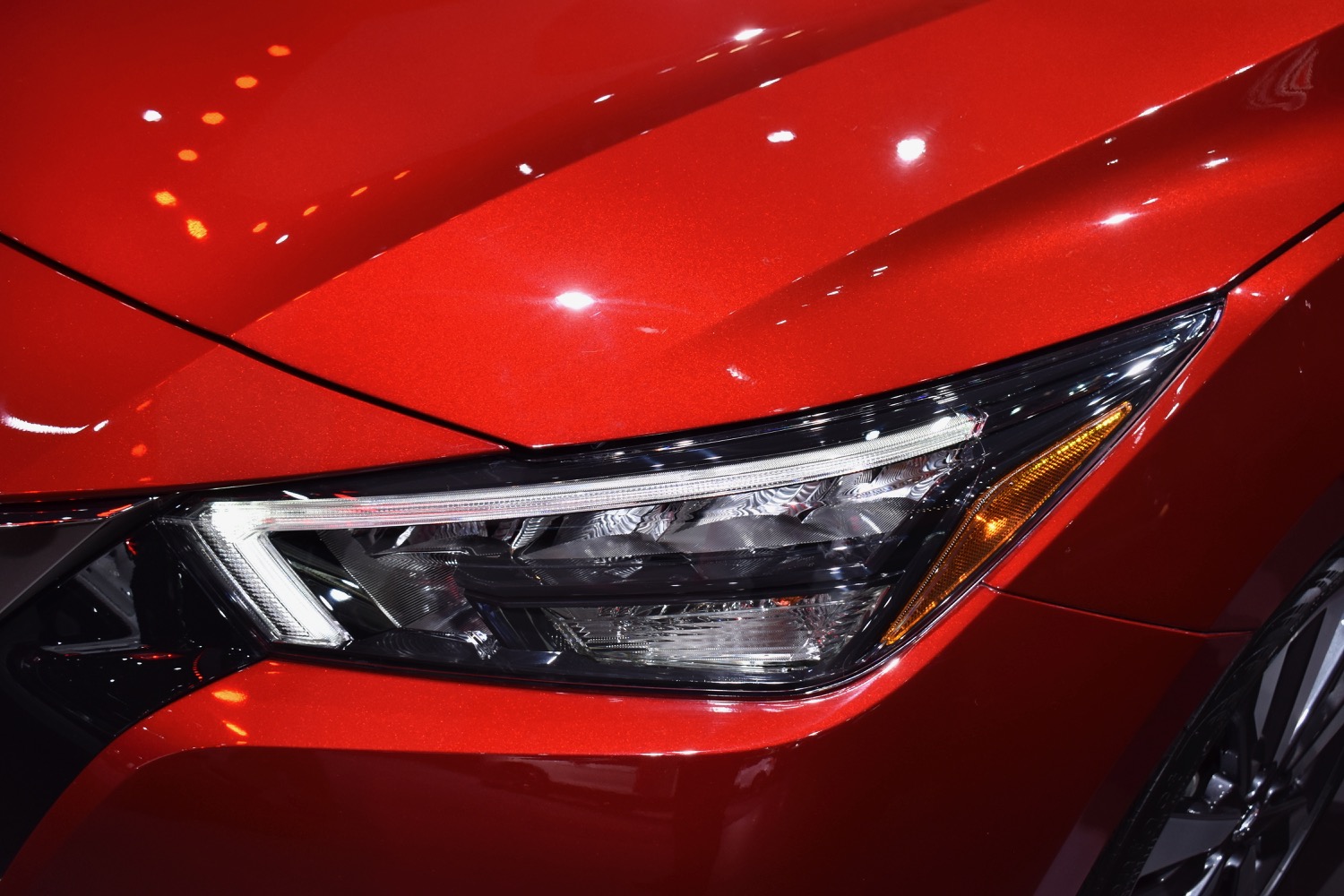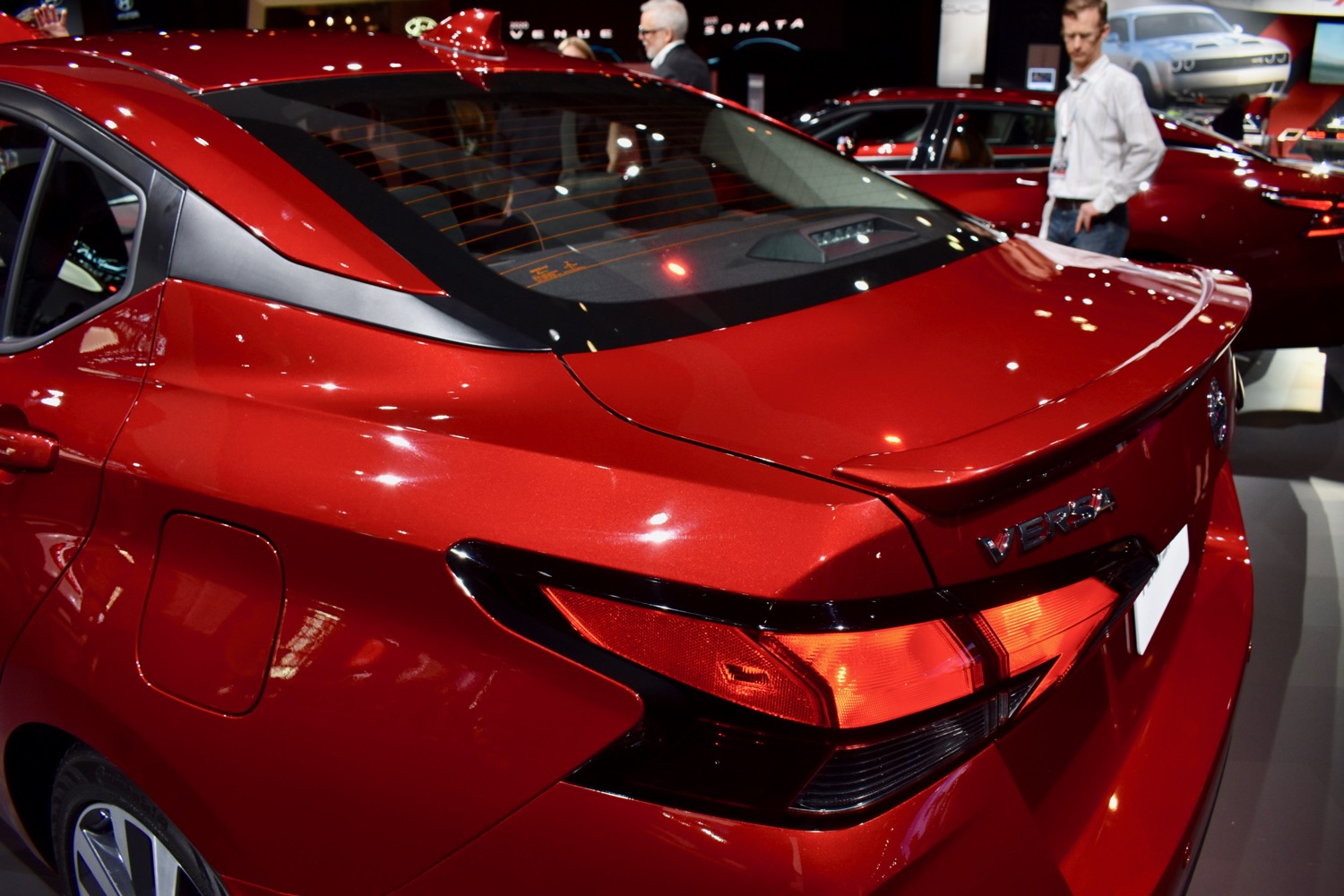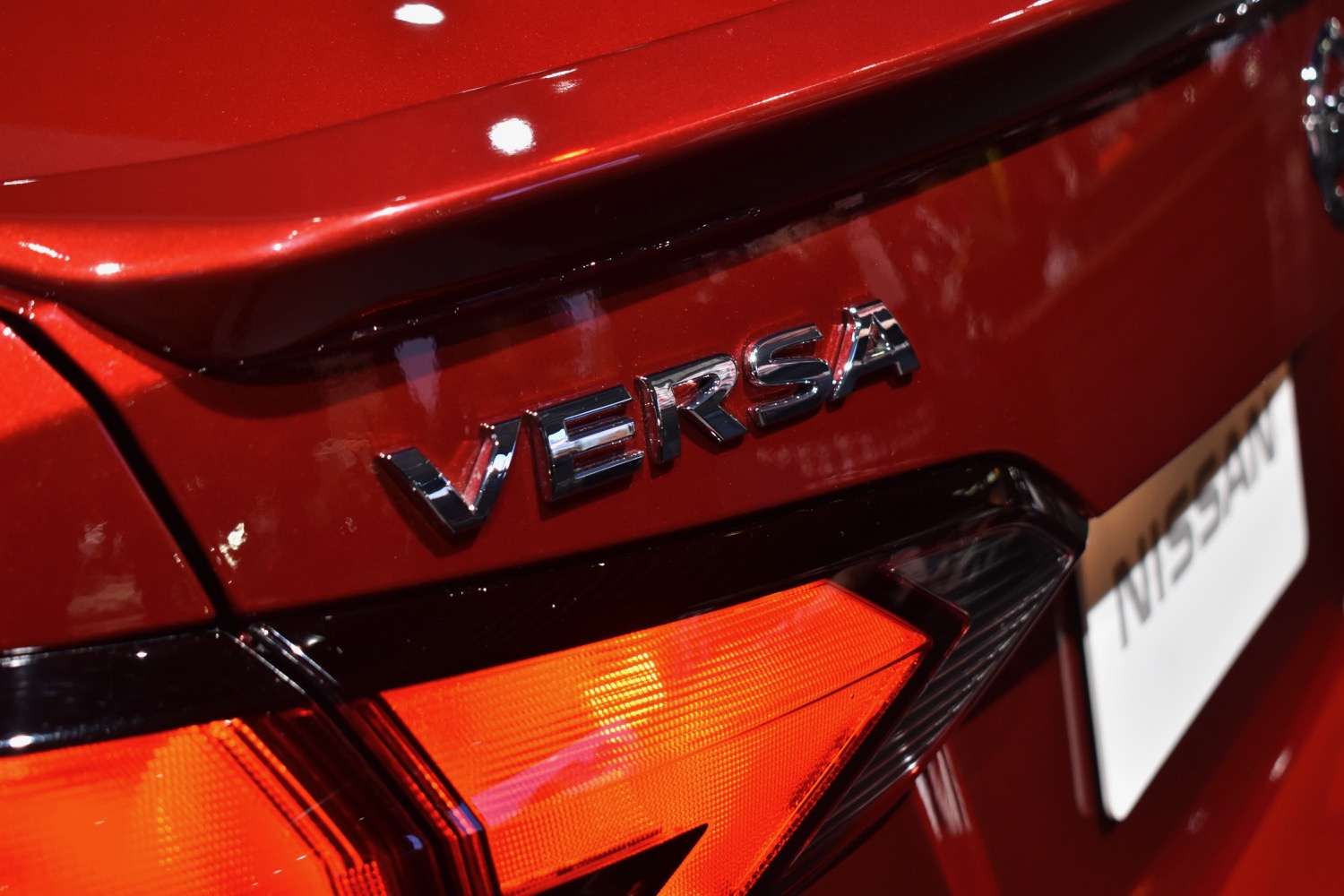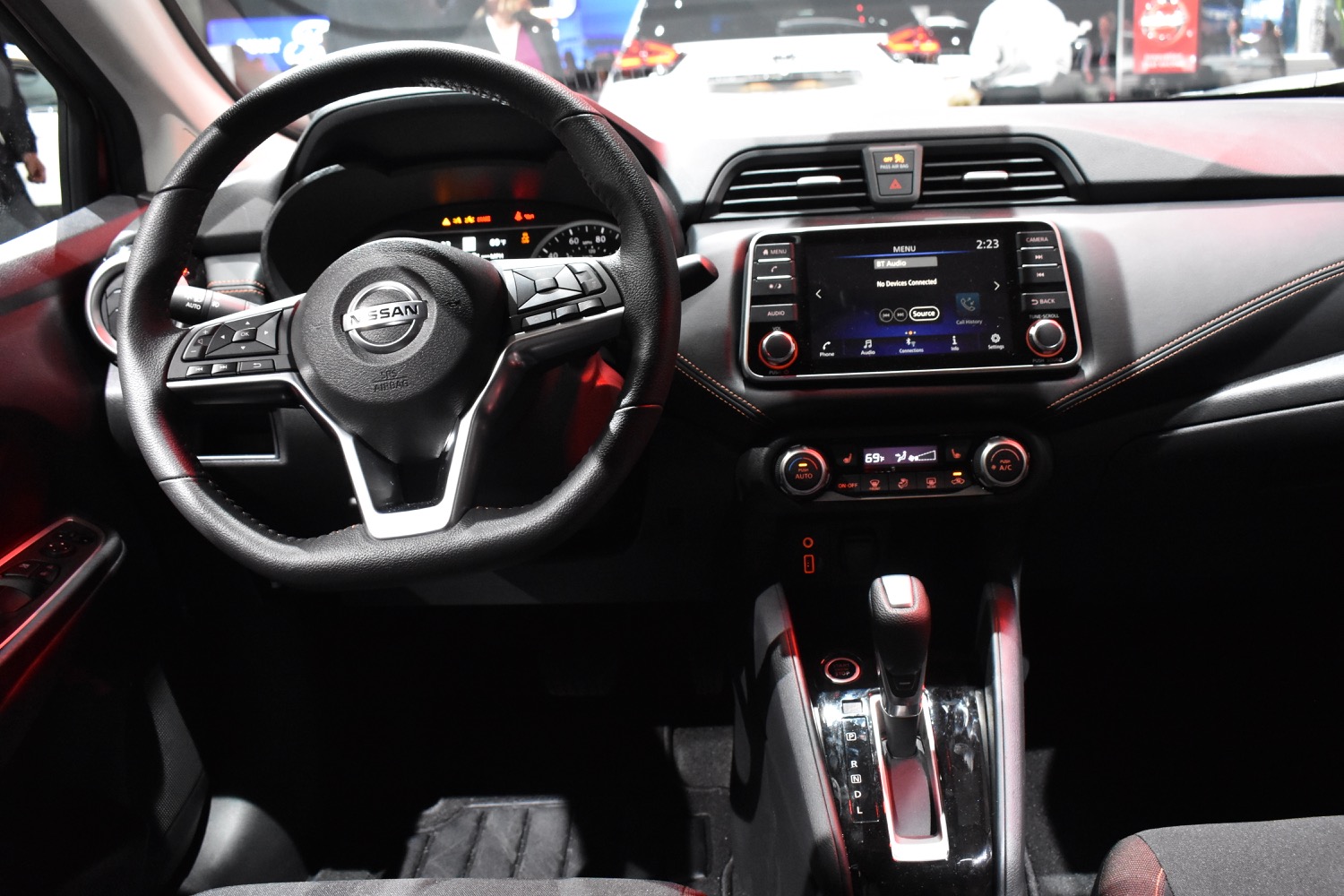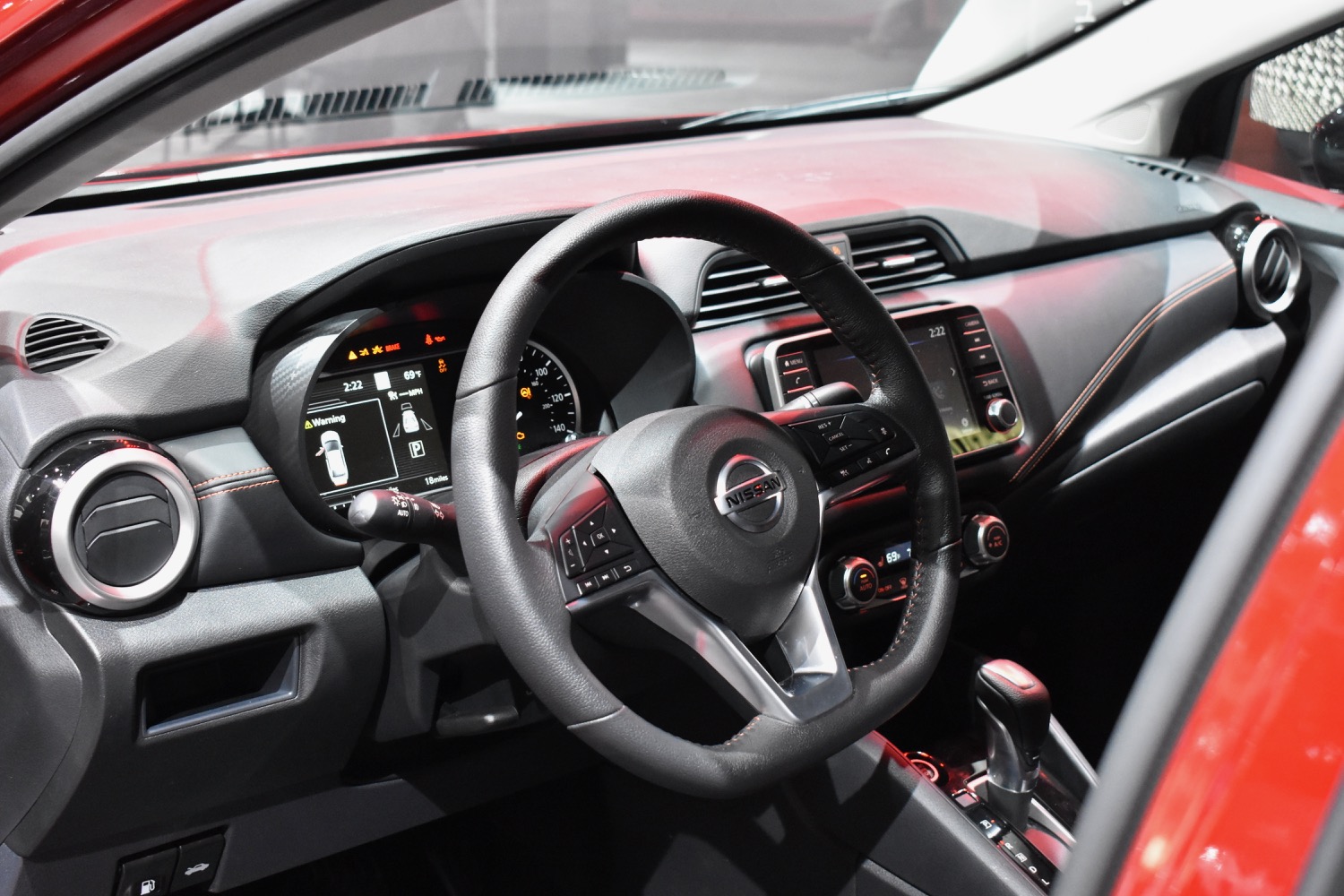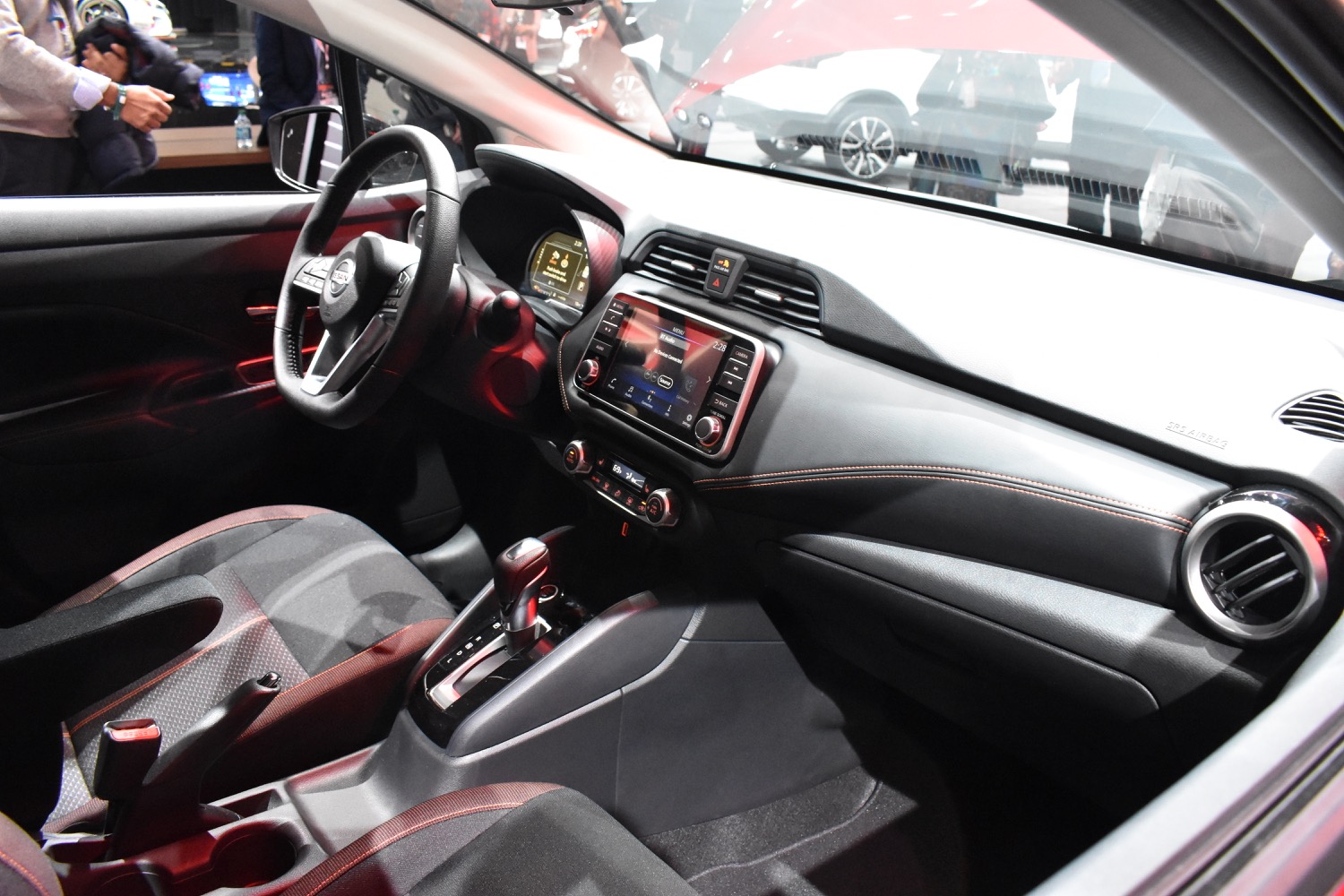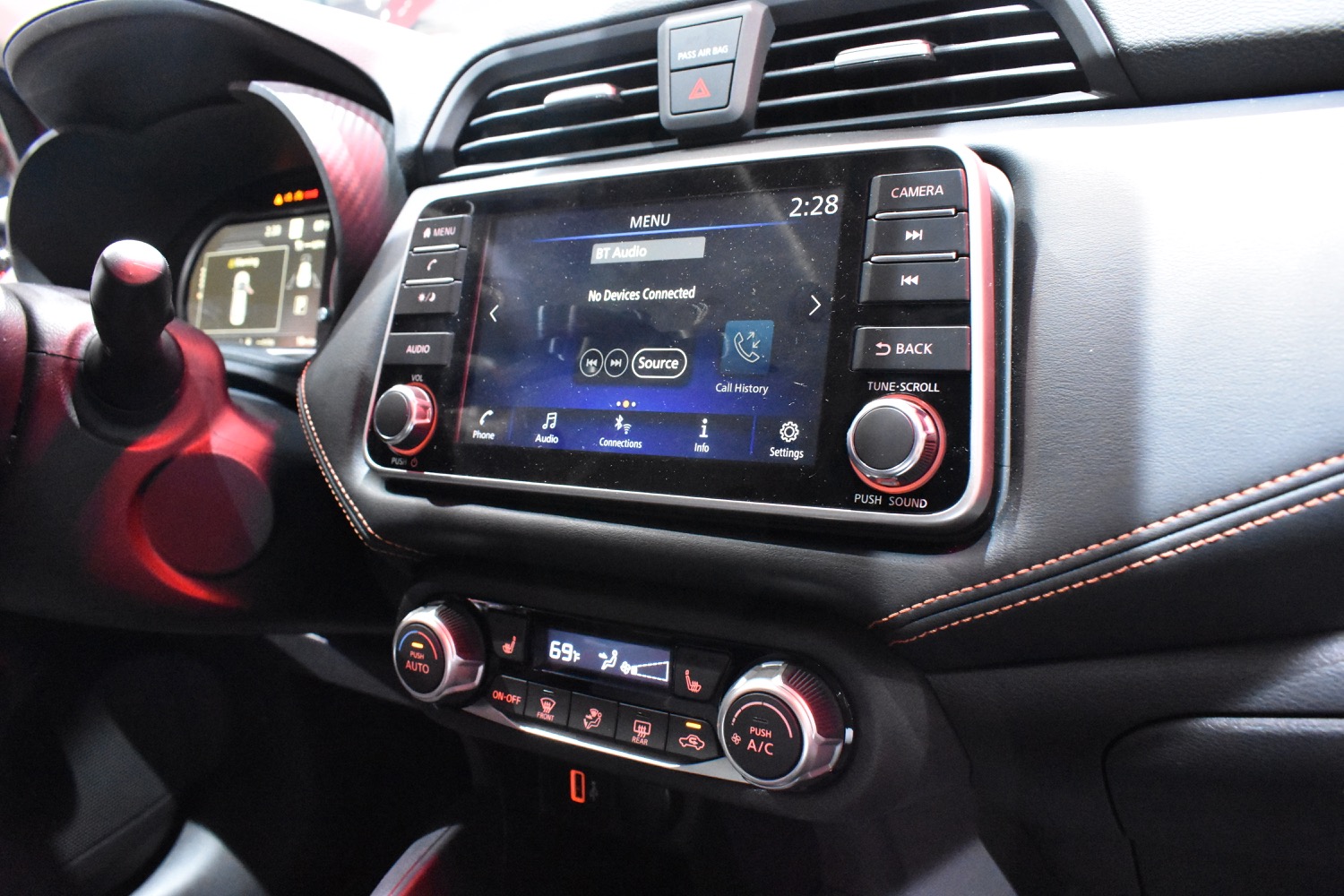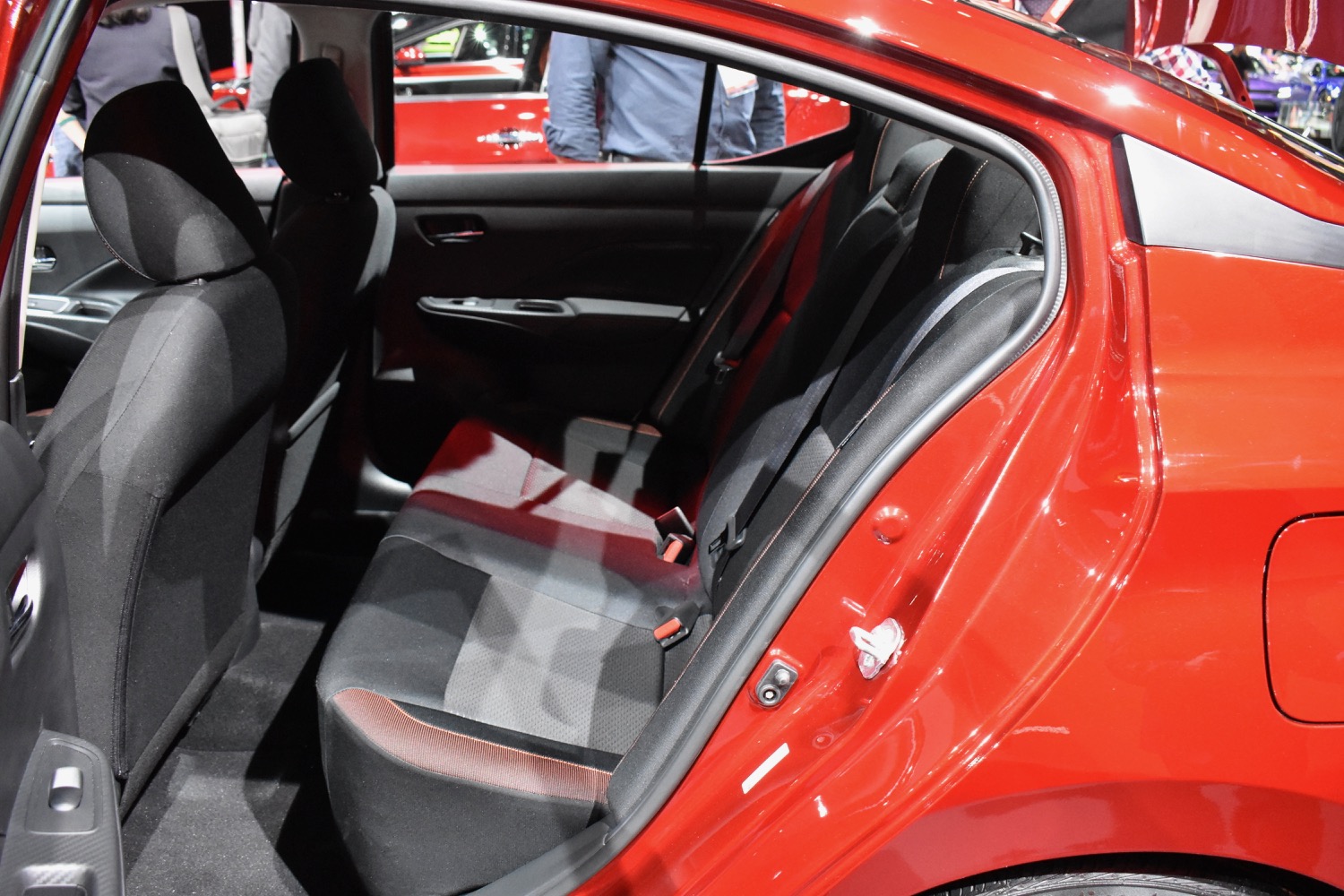The last Nissan Versa was a car that was easy to forget, but Nissan is trying to do things differently with the redesigned 2020 model. So instead of an auto show, Nissan chose the Tortuga Music Festival in Fort Lauderdale, Florida, to unveil the new subcompact sedan. But does the 2020 Nissan Versa have more to offer than just marketing stunts?
It’s immediately apparent that Nissan put more effort into the 2020 Versa than its predecessor. The previous-generation Versa sedan looked like it was designed during a coffee break, but the 2020 model gets dramatic exterior styling that makes it look like a mini Altima. Granted, Nissan’s massive “V-Motion” grille is still an acquired taste, but at least designers tried to do something distinctive.
The interior borrows heavily from the Altima as well, with a similar dashboard shape and flat-bottomed steering wheel. However, the central touchscreen display is embedded in the dashboard, rather than freestanding, as on the larger sedan. Apple CarPlay and Android Auto are available, but they aren’t standard equipment. Nissan did make autonomous emergency braking, lane departure warning, and automatic high beams standard, however. Adaptive cruise control, blind spot monitoring, and a driver-attention monitor are optional extras.
The front-wheel drive 2020 Versa is only available with one engine: A 1.6-liter four-cylinder unit. The pint-sized power plant produces 122 horsepower and 114 pound-feet of torque. Transmission choices include a five-speed manual and continuously variable transmission (CVT).
The 2020 Nissan Versa sedan starts at $15,625 for a base S model with the five-speed manual transmission. Adding the CVT to the S bumps the price up to $17,295. The mid-range SV trim level adds Apple CarPlay/Android Auto compatibility and other features for $18,535, while the top SR model starts at $19,135 (all prices include a mandatory $895 destination charge). Pricing is a significant step up from the 2019 Versa sedan, which started at $13,355, but the 2020 model adds more standard features. Nissan is no longer trying to win customers by simply making the car as cheap as possible.
Nissan is mum on future plans the Versa Note hatchback, and is likely expecting the similarly sized Kicks to take over that car’s role. The Kicks’ tall driving position and boxy styling allows Nissan to market it as a crossover, which is much more desirable to U.S. buyers than a hatchback. But the Kicks lacks all-wheel drive, making it functionally the same as most hatchbacks. Note that rival Toyota is bringing back the hatchback version of its Yaris alongside the current-generation sedan.
Updated on August 2, 2019: Added pricing information.
Editors' Recommendations
- New York International Auto Show canceled for 2020
- 2020 Nissan Sentra banishes boring styling, as well as its turbocharged engine
- Volkswagen aims for value with its updated 2020 Passat sedan
- The 2020 Hyundai Venue is small, affordable, and brimming with value
- Cadillac’s new 2020 CT5 sedan lets you Super Cruise across America

